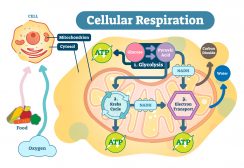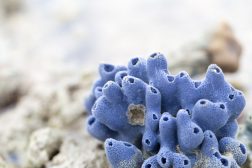Definition
noun
One of the B vitamins that can be obtained from pork, oatmeal, brown rice, vegetables, potatoes, liver, eggs, etc., as it is essential in maintaining appetite and growth and it serves as a co-enzyme during the production of energy from carbohydrates
Supplement
Thiamine is a water-soluble vitamin. It belongs to the B vitamins. It can be obtained from pork, oatmeal, brown rice, vegetables, potatoes, liver, eggs, etc. Its main function is to act as a coenzyme in the generation of energy from carbohydrates. It is also involved in nucleic acid synthesis and in nerve function. Its derivative, thiamine pyrophosphate, is used in converting pyruvate to acetyl CoA. Inadequate thiamine in the diet leads to beriberi (a neurological and cardiovascular disease), optic neuropathy, and Wernicke-Korsakoff syndrome (with both neurologic and psychiatric symptoms). Quite the reverse, an overdose of thiamine may cause drowsiness or muscle relaxation.1 The Recommended Dietary Allowance for thiamin is 1.2 mg/day for adult males and 1.1 mg/day for adult females.2
Word origin: thio + vitamine (sulfur-containing vitamin)
IUPAC name: 3-((4-Amino-2-methyl-5-pyrimidinyl)methyl)- 5-(2-hydroxyethyl)-4-methylthiazolium chloride
Chemical name: Thiazolium, 3-((4-amino-2-methyl-5-pyrimidinyl)methyl)-5-(2-hydroxyethyl)-4-methyl-chloride
Chemical formula: C12H17N4OS+
Also called:
- thiamin
- vitamin B1
- aneurin
- aneurine
See also:
- B vitamins
- vitamin
Related term(s):
- thiamine deficiency
Reference(s):
1 “Thiamin, vitamin B1: MedlinePlus Supplements”. U.S. Department of Health and Human Services, National Institutes of Health. Retrieved from ://www.nlm.nih.gov/medlineplus/druginfo/natural/patient-thiamin.html
2 Bellows, L. and Moore, R. (2012). Water-Soluble Vitamins: B-Complex and Vitamin C. Retrieved from ://www.ext.colostate.edu/PUBS/FOODNUT/09312.html







